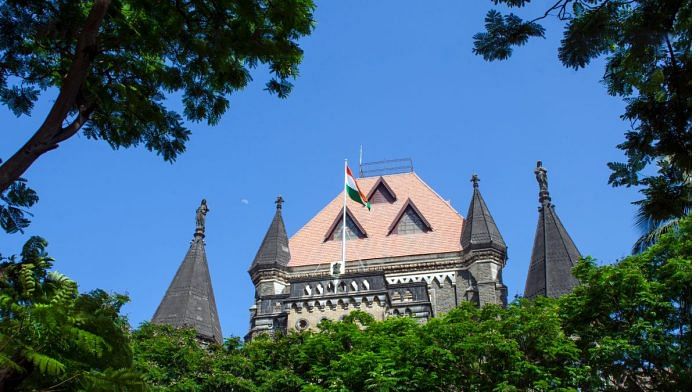New Delhi: The Bombay High Court Monday relied on a central government submission that the amended Information Technology (IT) rules did not aim to curb satire, sarcasm, or political comments online to refuse an interim stay on the setting up of a fact check unit under the government.
The fact check unit (FCU) is supposed to identify false, fake, or misleading online content “related to the business of the central government”. Rule 3(1)(b)(v) of the IT rules, 2021, was amended in 2023 to empower the government to form the FCU.
Justice A.S. Chandurkar said there is “an arguable case” against the amended IT rule but relied on Solicitor General Tushar Mehta’s submission that “political opinions, satire, and comedy are aspects not sought to be linked to the business of the central government” to reach his judgment.
Rule 3(1)(b)(v) now also requires online platforms to make reasonable efforts to ensure users do not display, upload, or transmit any information “in respect of any business of the central government” that the FCU identifies as “fake or false or misleading”. If online platforms fail to take down content the FCU flags, they could lose safe harbour protections against liability for third-party content.
On 31 January, the Bombay High Court delivered a split verdict on petitions challenging the amendment. The following month, the court’s chief justice appointed Justice Chandurkar to hear the petitions. The petitioners then filed an interim application, seeking a stay on the setting up of the FCU. Justice Chandurkar reserved his order on the interim application on 29 February and delivered the judgment Monday.
In his judgment, Justice Chandurkar said forming the FCU would not result in an irreversible situation because any action taken after notifying the FCU would always be subject to the validity of the amended IT rule.
In the 31 January split verdict, Justice G.S. Patel said the amended IT rule amounted to censorship. On the other hand, Justice Neela Gokhale said the amended IT rule does not prohibit critical opinion, satire, or parody, no matter how critical of the government or its business, as long as it is not false or misleading.
Also read: Amended IT Rules: Bombay HC refuses to stay formation of FCUs till third judge decides petitions
Why HC didn’t stay FCU setup
In April 2023, the government said in court that it would not notify the FCU till the court decided on the petitions challenging the amended IT rule. The petitioners now demanded that the government wait till Justice Chandurkar’s decision on the amended IT rule.
The single judge, however, noted the petitioners are social media users apprehending a “chilling effect” of the rule and not online platforms. He noted Solicitor General Tushar Mehta’s submission that the amended IT rule intended to deal with government business in its strict sense. The government does not want to muzzle political views, he told the court.
The court said that at the prima facie stage, “the stand taken by the non-applicants (government) allays the apprehension expressed by the applicants (petitioners) that the FCU would prevent expression of political views or comments, sarcasm, political satire, or dissent”.
“This situation, when pitted against the larger public interest, leads me to opine that grave and irreparable loss is not shown to result if the FCU is notified…,” the court observed.
The judge said no case was made that warrants making the government adhere to its earlier statement of not setting up the FCU during the pendency of proceedings before him.
What the split verdict said
In the split verdict, Justice Patel said the 2023 amendment “is not just too close to but actually takes the form of censorship of user content”. He, however, clarified it is not a comment on any dispensation or the present government.
He rejected the submission that the fundamental right to freedom of speech and expression is to ensure that every citizen receives only ‘true’ and ‘accurate’ information as determined by the government.
“It is not the business of the government to keep citizens from falling into error. It is the other way around. For it is very much business and should be the duty of every citizen to prevent the government from falling into error. Governments do not select citizens. Citizens elect governments,” he said.
Justice Patel also said the central government did not specify how the FCU would decide which information was fake, false, or misleading. The government also did not lay down a procedure for hearing a counter to or opportunity to counter any such finding.
“Regarding the business of the central government, the central government’s FCU will decide whether content is fake, false, or misleading. How, on what material, no one knows. Even we are not told,” he said.
On the other hand, Justice Gokhale said the “requirement of a nuanced regulation underscores the cost of free speech absolutism in this ‘infodemic’ era”.
Justice Gokhale said the amended IT rule does not directly penalise the online platform or platform user without recourse to a court of law. She pointed out that an entire mechanism, comprising the grievance redressal officer and the appellate committee, has been provided for. She also rejected the argument that the provision is vague and said the words ‘fake’, ‘false’, and ‘misleading’ are to be understood in the ordinary sense of their meaning.
Justice Gokhale said the right of citizens to participate in the representative and participatory democracy of the county is meaningless unless they have access to authentic information.
(Edited by Madhurita Goswami)
Also read: ‘Censorship’ or ‘no impact on criticism of govt’ — Bombay HC’s split judgment on IT Rules amendment



